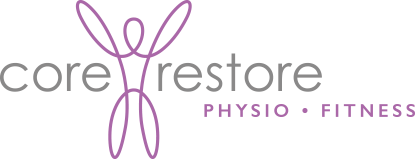The Sugar Rollercoaster
Ahh the festive season. Eat, Drink and Be Merry, including a whole host of sweet food which is in abundance at this time of year. When it comes to sugar most people know it’s not the best for us, but there’s this thought that it’s not a massively big deal unless you’re diabetic, overweight, or have heart issues. Umm…well, hate to break it to you, but this is something we should ALL be concerned about. Yes, it’s our primary source of fuel, and our body can handle some sugar, but too much can raise blood sugar levels, wreaking havoc on all kind of bodily systems, and according to Public Health England here in the UK, we’re consuming 90g of sugar daily; three times more than the recommended amount. Imagine what that has probably looked like over the festive period where i think we can all agree it’s going to have been even higher than that!
So what’s the deal? Well, when we consume sugar, our body responds by asking the pancreas to make more insulin; this is the hormone responsible for transporting the sugar (as glucose) into our cells so that it can be used for energy. If we don’t use this glucose straight away, it heads to the liver to be stored as glycogen, ready for use later. The problems start when we have too much sugar in our system. There’s only so much that can be stored in the liver, and so excess is converted to fatty acids, re-enters the bloodstream and gets stored in fat tissue (issue 1: weight gain). When we flood our system with too much sugar, the pancreas responds by making even more insulin to cope with the transportation of glucose. The process is speeded up with glucose being removed at a faster rate, and that’s when we can experience a sugar crash. (issue 2: unbalanced blood sugar; 3pm slumps, 2am wakeups, hot flashes, insomnia, food cravings, mental health decline, moodiness, sluggish mornings). If the process continues, and we continue to introduce sugar into our system, we end up with lots of glucose in our blood stream (as a result of the foods we eat) as our cells have reached capacity for what they need, plus a lot of insulin which has been produced to meet the demand. It can even result in the cells becoming depleted in glucose as the insulin transportation just stops working. (Issue 3: Insulin resistance; feeling tired, hungry, poor concentration, low mood, constant hunger)
Insulin resistance is a serious issue; it can lead to diabetes, gestational diabetes, obesity and cognitive decline including Alzheimer’s. It can also give rise to symptoms like constipation, anxiety & depression, skin disorders like eczema & psoriasis, acne, premature grey hair, hormonal cancers, headaches, poor concentration, muscle cramps, and osteoporosis
Is All Sugar Equal?
Well, no. Starchy complex carbohydrates found in vegetables & wholegrain foods take the body longer to digest and therefore don’t cause big spikes in blood sugar. When combined with protein and good fats, they help regulate blood sugar due to being slow energy resources, resulting in steady energy consumption, rather than having to use it (or store it) immediately like with glucose. In contrast, simple carbohydrates, AKA refined or processed carbs (found in white flour & baked goods, foods with added sugars, refined grains, sweets, fizzy drinks,) have been stripped of the nutrients which assist our health and are used for immediate energy needs within the body (www.NHS.co.uk, 2020).
Am I Insulin Resistant?
If you’re struggling with midriff weight gain that just wont shift, brain fog, lethargy, poor concentration & forgetfulness, and the consumption of sweet treats doesn’t relieve cravings, then yes, you probably are.
But let’s remember from previous posts that insulin resistance isn’t just affected by the foods we eat. Stress, sleep and exercise come into it too. Insulin is a primary hormone; it controls what else is going on in our body and can affect a whole hormonal cascade which controls literally every other bodily process.
If this is something you’d like to explore further, I LOVE delving into this stuff and have had some great results with clients (bye bye bloating, insomnia, crippling PMS symptoms, restless legs at night; hello trim waistline, energy, libido and sleep)
